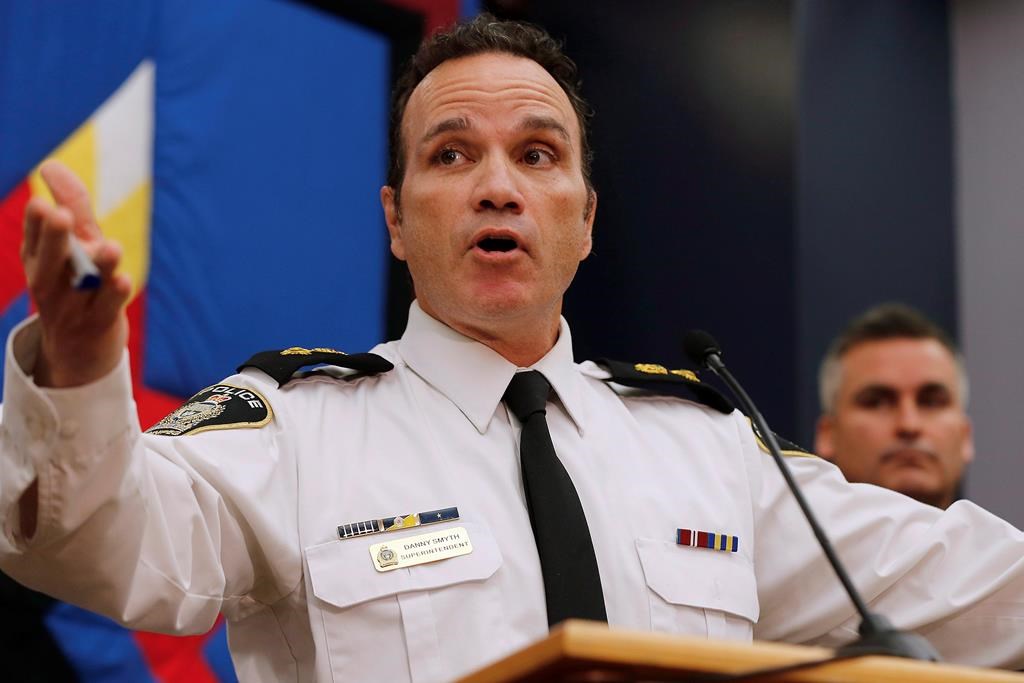The president of the Winnipeg Police Association says there’s never been a tougher time to wear the Winnipeg Police Service badge than right now.

“In my 31 years as a police officer, I’ve never seen the morale so low,” Maurice Sabourin tells 680 CJOB.
“It’s truly in the basement.”
While the past year, with COVID-19 and ‘defund police’ protests, have contributed to reduced morale, those are not the only issues. Nor has any sudden change led to the consensus bad feelings among officers, according to Sabourin.
Instead, it’s an issue that has been years in the making.
“When the mayor and city council started cutting the police budget and didn’t fund resources appropriately, officers didn’t see any pushback.”
“Our complement has decreased by over 100 officers in the time Chief (Danny) Smyth has been in office, and our calls for service have gone up by 40 per cent in the past 10 years.”
Winnipeg has seen more than 40 homicides in each of the past two calendar years, including a record-setting 44 in 2019.
So far in 2021, five killings have taken place in the city.

Smyth has previously said he’s fighting for the same resources Sabourin’s group desperately needs.
“This is going to be a challenge for me, because the same administration negotiated a five-year contract that included a 2.5 per cent increase, so I have a significant shortfall,” he said in late 2019, when City Hall capped the police’s budget increase at 2 per cent.
“I’m having a hard time reconciling the good work that’s being done in the community by our front-line members and the budget stuff, and it’s causing me some concern,” he added.
The pandemic has only piled more on top of officers, according to Sabourin, but his members are trying to remain patient as Manitoba’s vaccination program ramps up.
“We’re patiently waiting (for officers to become eligible for vaccination as front-line workers),” Sabourin says. “We realize there are many other vulnerable people out there that need it prior to us getting it. We don’t want to push anyone out of the line.”
The danger of the job still takes on a whole new meaning when policing amid a pandemic.
“Our members have hundreds of contacts with vulnerable people on a regular basis, and the last thing we want to do is asymptomatically spread the coronavirus to them.”
Unlike other issues plaguing the association, Sabourin believes there’s a light at the end of that particular tunnel after recent meetings with Manitoba Health Minister Heather Stefanson.

The police have been a part of a number of high-profile cases in recent months.
Among those that drew the most attention was the death of 16-year-old Eisha Hudson last spring, which Manitoba’s Independent Investigation Unit recently ruled in favour of the officer who fatally shot the teen, recommending charges not be laid.
Sabourin says behind the scenes, officers have dealt with other stresses that aren’t as widely reported.
“A lot of members were saddened by the news two (colleagues) passed away recently.”
“The response by the chief, quite honestly, was very poor. That’s angered members.”
Sabourin called it an example of a lack of leadership that’s plagued the force for the better part of a decade now. He says the contract between the two sides expires in 2022.
While the association typically doesn’t meet directly with the chief, Sabourin does give Smyth’s deputies credit for meeting with his team to air out these concerns.
The lack of action afterward, however, is leading him to speak out.
“Whether the message is being delivered by the deputies or not, it’s up to the chief to make those changes. Those changes just aren’t being made.”
Global News reached out to Chief Smyth’s office for comment on Sabourin’s remarks, but it declined an interview.
— With files from Brittany Greenslade









Comments